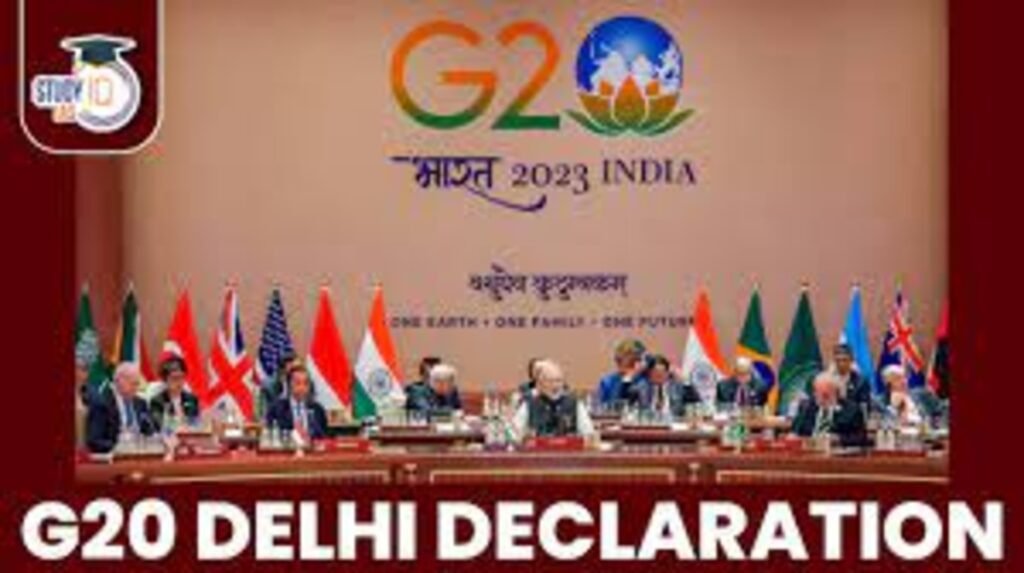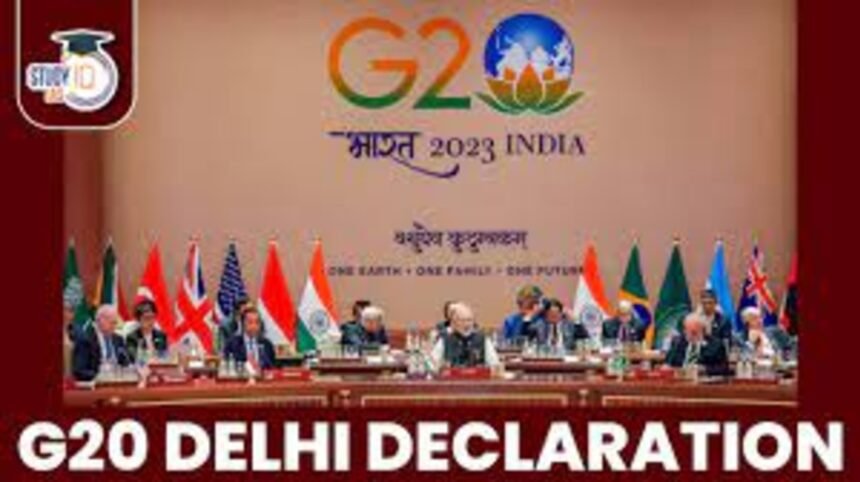September 11, 2023
Introduction
In a momentous development, the G20 summit held under India’s presidency has adopted the Delhi Declaration, a consensus document that places significant emphasis on strong, sustainable, balanced, and inclusive growth. The declaration, which was the product of intense negotiations among member countries, addresses critical issues ranging from geopolitics to climate change and economic stability.

The Prime Minister of India, Narendra Modi, who chaired the G20 sessions, commended the collaborative efforts of Sherpas and ministers from member countries in achieving consensus on the declaration. In his address during the summit, PM Modi expressed his satisfaction, stating, “Have just got the good news that due to the hard work of our teams and your cooperation, a consensus has been reached on the New Delhi G20 Leaders Summit Declaration.”
Here are the key highlights of the Delhi Declaration:
1. Territorial Integrity and Sovereignty:
The document underscores the importance of refraining from the threat or use of force to seek territorial acquisition against the territorial integrity and sovereignty of any state. This is a significant statement in light of ongoing geopolitical conflicts worldwide.
2. Combating Terrorism:
The declaration unequivocally states that terrorism constitutes one of the most serious threats to international peace and security. It declares all acts of terrorism as criminal and unjustifiable, regardless of their motivation, location, or perpetrator.
3. Equitable Growth:
Emphasis is placed on protecting vulnerable populations through the promotion of equitable growth and the enhancement of macroeconomic and financial stability.
4. Sustainable Development:
The declaration focuses on achieving strong and sustainable growth while accelerating progress on sustainable development goals. It also calls for a green development pact and the reinvigoration of multilateralism.
5. Trade Commitments:
G20 member countries commit to promoting unrestricted, open, and fair trade in agriculture, food, and fertilizers. Importantly, they pledge to refrain from imposing export restrictions, fostering a more inclusive global trade environment.
6. Global Health:
The G20 nations affirm their commitment to strengthening the global health architecture. They aim to enhance the resilience of health systems and support the development of climate-resilient and low-carbon health systems in collaboration with multilateral development banks (MDBs).
7. Climate Finance:
The declaration underscores the necessity of aligning financial flows with climate objectives. It calls for the expansion of finance, capacity-building, and technology transfer, with a specific focus on the priorities and needs of developing countries.
The adoption of the Delhi Declaration is seen as a significant step forward in addressing some of the world’s most pressing challenges. It reflects the commitment of the G20 member countries to collaborate on issues of global importance, from peace and security to economic development and climate action.
Conclusion
India’s G20 Sherpa, Amitabh Kant, described the Delhi Declaration as “historic and path-breaking,” highlighting the unprecedented consensus achieved on all developmental and geopolitical issues. The document serves as a blueprint for international cooperation and a beacon of hope for a more inclusive and sustainable global future.






